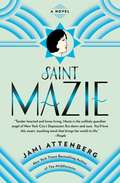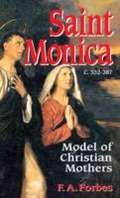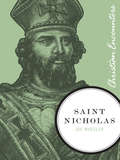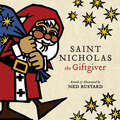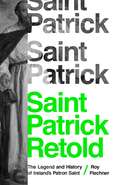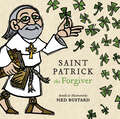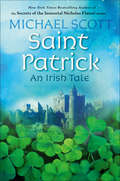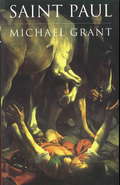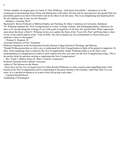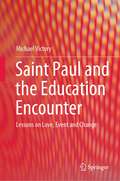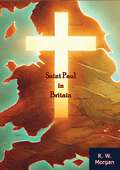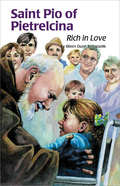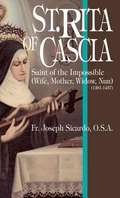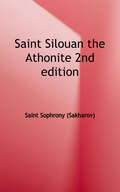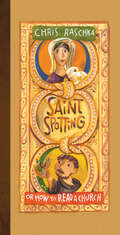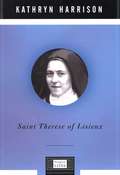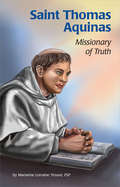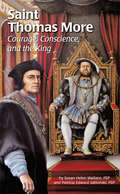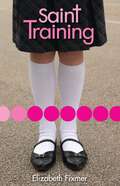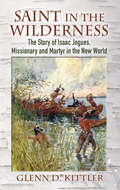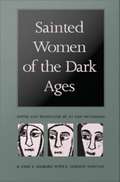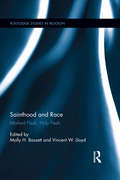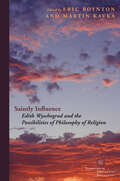- Table View
- List View
Saint Mazie: A Novel
by Jami AttenbergMeet Mazie Phillips: big-hearted and bawdy, she's the truth-telling proprietress of The Venice, the famed New York City movie theater. It's the Jazz Age, with romance and booze aplenty--even when Prohibition kicks in--and Mazie never turns down a night on the town. But her high spirits mask a childhood rooted in poverty, and her diary, always close at hand, holds her dearest secrets.When the Great Depression hits, Mazie's life is on the brink of transformation. Addicts and bums roam the Bowery; homelessness is rampant. If Mazie won't help them, then who? When she opens the doors of The Venice to those in need, this ticket taking, fun-time girl becomes the beating heart of the Lower East Side, and in defining one neighborhood helps define the city.Then, more than ninety years after Mazie began her diary, it's discovered by a documentarian in search of a good story. Who was Mazie Phillips, really? A chorus of voices from the past and present fill in some of the mysterious blanks of her adventurous life.Inspired by the life of a woman who was profiled in Joseph Mitchell's classic Up in the Old Hotel, SAINT MAZIE is infused with Jami Attenberg's signature wit, bravery, and heart. Mazie's rise to "sainthood"--and her irrepressible spirit--is unforgettable. *Includes Reading Group Guide*
Saint Monica: Model of Christian Mothers
by F. A. ForbesSaint Monica, mother of Saint Augustine, prayed for over 20 years for her very wayward son. She is a model for all Christian mothers.
Saint Nicholas
by Joe WheelerYou know him as the rotund merry-maker in the red suit. Butset aside the childhood myth. In this portrait, you'll encounter the true St.Nicholas, a figure revered for his astonishing miracles and a humility thatredirected all attention to God's glory. You'll be amazed to find St. Nicholasalways turning up at just the right time--rescuing sailors from the certaindeath of a violent sea, saving three young women from a life of prostitution,and guarding an infant from the burns of a boiling bath.A tireless defender of God's truth and His people, St.Nicholas's wonderful and mysterious deeds illustrate, time and again, a heartfor the weak, the poor, and the endangered--truly "the patron saint ofpractically everybody" and one of the most fascinating figures in all ofChristian history.We learn about life through the lives of others. Their experiences,their trials, their adventures become our schools, our chapels, our playgrounds.Christian Encounters, a series of biographies from Thomas Nelson Publishers,highlights important lives from all ages and areas of the Church through proseas accessible and concise as it is personal and engaging. Some are familiar faces.Others are unexpected guests. Whether the person is D.L. Moody, Sergeant York, SaintNicholas, John Bunyan, or William F. Buckley, we are now living in the worldthat they created and understand both it and ourselves better in the light oftheir lives. Their relationships, struggles, prayers, and desires uniquelyilluminate our shared experience.
Saint Patrick Retold: The Legend and History of Ireland's Patron Saint
by Roy FlechnerA gripping biography that brings together the most recent research to shed provocative new light on the life of Saint PatrickSaint Patrick was, by his own admission, a controversial figure. Convicted in a trial by his elders in Britain and hounded by rumors that he settled in Ireland for financial gain, the man who was to become Ireland’s patron saint battled against great odds before succeeding as a missionary. Saint Patrick Retold draws on recent research to offer a fresh assessment of Patrick’s travails and achievements. This is the first biography in nearly fifty years to explore Patrick’s career against the background of historical events in late antique Britain and Ireland.Roy Flechner examines the likelihood that Patrick, like his father before him, might have absconded from a career as an imperial official responsible for taxation, preferring instead to migrate to Ireland with his family’s slaves, who were his source of wealth. Flechner leaves no stone unturned as he takes readers on a riveting journey through Romanized Britain and late Iron Age Ireland, and he considers how best to interpret the ambiguous literary and archaeological evidence from this period of great political and economic instability, a period that brought ruin for some and opportunity for others. Rather than a dismantling of Patrick’s reputation, or an argument against his sainthood, Flechner’s biography raises crucial questions about self-image and the making of a reputation.From boyhood deeds to the challenges of a missionary enterprise, Saint Patrick Retold steps beyond established narratives to reassess a notable figure’s life and legacy.
Saint Patrick the Forgiver: The History and Legends of Ireland's Bishop
by Ned BustardHello, my name is Patrick. You may have heard my story. I walked the span of Ireland to tell of God’s great glory. And with a wee green shamrock I shared of the Three-in-One: our God—the blessed mystery— Father, Spirit, and the Son. Everybody's Irish on Saint Patrick's Day. But did you know that Patrick—the greatest bishop of Ireland—wasn't Irish? Combining Patrick's words from his Confessions with a few of the legends about him, this whimsical retelling will teach families about the fascinating life of the real Saint Patrick and help them discover a remarkable story of love and forgiveness along the way. Told in rollicking rhyme and beautifully illustrated with Ned Bustard's signature linocut artwork, this children's book will be enjoyed by kids and the adults who read with them. Also included is a note from the author to encourage further conversation about the content. Discover IVP Kids and share with children the things that matter to God!
Saint Patrick: An Irish Tale
by Michael ScottA fabled Irish figure comes to life in this ebook original short story by Michael Scott, the New York Times bestselling author of the Secrets of the Immortal Nicholas Flamel series.Many have spoken of his legendary adventures, but few know the true tale of Saint Patrick...Taken prisoner by pirates, Patrick sails to Ireland as a young boy and must fight to find his way back home, led by faith and the will to survive. Years later, he returns to the land that once held him captive--and this time, he'll build a legacy that will last centuries.
Saint Paul
by Michael GrantSaint Paul was not only a religious figure of exceptional power but one of the outstanding makers of history. This is the biography of a man who profoundly influenced people of widely divergent beliefs, races and epochs.Without the spiritual earthquake brought about by St Paul, Christianity would probably never have survived. Yet Paul's importance extends very widely beyond the religious field. His effect upon Western thought has been immeasurable. This is the man Michael Grant has described in his book. Paul's own authentic voice can still be heard in his surviving letters or Epistles, which not only contain numerous autobiographical clues, but are the earliest Christian documents in existence and rank high among the most valuable literature the world has ever produced. Dr Grant considers in detail this extant literature, along with material of Paul's four evangelical journeys and discusses the reasons for his spectacular conversion on the road to Damascus. As in The Jews of the Roman World and Herod the Great, he brings together research on Israel on the one hand and Greece and Rome on the other, believing that it is necessary to study these cultures in conjunction, since Paul was a Jew who wrote in Greek and was a Roman citizen. The aim of this book, then, is to bring to life this many sided human being of outstanding and peculiar gifts.
Saint Paul And The New Evangelization
by Ronald D. Witherup Ronald D. Witherup SsTo some, "the New Evangelization" seems to mean warmed-over and outdated apologetics that rarely resonate with people today. But that approach fails to do justice to what evangelization is really all about. In Saint Paul and the New Evangelization, one of today's most respected Scripture scholars offers a far richer, more deeply biblical approach. Ronald D. Witherup, PSS, analyzes the techniques of one of the church's best evangelists—Paul of Tarsus—to show how we can help reinvigorate the faith of friends and loved ones. You don't need to know a lot about the Bible or theology. Just follow St. Paul's inspiring example, and discover how to talk about your faith in ways that change hearts and minds.
Saint Paul and the Education Encounter: Lessons on Love, Event and Change
by Michael VictoryThis book connects the Biblical Paul’s work as an educator with the revival of interest in Paul’s impact on contemporary social and cultural experience, sometimes referred to as ‘Paul’s new moment’. It presents Paul's letters as being the testament of an educator who brought a radical emancipatory approach to the communities with whom he lived and worked. The book draws on history, philosophy, New Testament studies, and social theory to present the case for Paul as the initiator of a pedagogy of the event. This book explores the concept of a pedagogy of the event, and provides a case study of success in its implementation.
Saint Paul in Britain
by R. W. MorganSaint Paul in Britain by R. W. Morgan presents a compelling and unconventional account of early Christianity, arguing that the Apostle Paul not only traveled to Britain but also played a key role in the Christianization of the British Isles. Written in the 19th century, Morgan’s work challenges traditional views of church history, offering a unique interpretation of Britain’s spiritual heritage.Drawing on ancient texts, folklore, and historical records, Morgan weaves together a narrative that suggests Christianity reached Britain much earlier than traditionally believed—before the mission of Augustine of Canterbury in 597 AD. He argues that Paul’s teachings had a lasting influence on the British Isles, shaping early Christian practices and beliefs long before the formal establishment of the Roman Catholic Church in Britain.Morgan explores connections between early Celtic Christianity and Pauline teachings, proposing that the faith practiced in Britain before Roman Catholic influence was distinct in character and closer to the simplicity of the apostolic church. He also discusses early British rulers who allegedly embraced Christianity, emphasizing the significance of these events in shaping the spiritual and cultural identity of Britain.Though Morgan’s theories remain controversial and are not widely accepted by mainstream historians, Saint Paul in Britain continues to intrigue readers interested in alternative histories and speculative religious scholarship. The book invites reflection on the origins of Christianity in Britain and encourages readers to reconsider the impact of lesser-known narratives within church history.For those drawn to the intersection of history, theology, and legend, Saint Paul in Britain offers a thought-provoking and imaginative exploration of the roots of British Christianity, challenging conventional assumptions about the spread of the faith and sparking curiosity about what may lie beyond the established historical record.
Saint Pio of Pietrelcina
by Eileen Dunn BertanzettiThe amazing life story of Francesco Forgione--known to the world as Padre Pio. This Franciscan priest, who bore the wounds of the crucified Jesus, used the special gifts he received from God to relieve the sufferings and pains of others. Ideal for ages 9 to 1.
Saint Rita of Cascia
by Joseph Sicardo Dan J. MurphyThis book was originally copyrighted in 1916; describes St. Rita's life, virtues and journey to sainthood. She, like St. Jude, is venerated as the saint of the impossible.
Saint Silouan the Athonite
by Saint SophronyIn the autumn of 1892 a young Russian peasant named Simeon from the province of Tambov was drawn to that ancient repository of Orthodox spirituality, Mt Athos. He had done his military service and now came to the Russian Monastery of St Panteleimon to embark on long years of spiritual combat lasting until his death in 1938. Although he was unlearned and ignorant in the ordinary sense, tireless inner strivings gave him authentic personal experience of God identical to that of many of the ancient Desert Fathers. The first part of this book is a remarkable account of St Silouan's life, personality and teaching by his spiritual disciple Saint Sophrony. St Sophrony went to Mt Athos in 1925 and there at the Monastery of St Panteleimon became an assistant to Staretz Silouan. Part two comprises the writings of Silouan, originally penciled in laborious, unformed characters on odd scraps of paper. The Lord said, "Every one that is of the truth hears my voice" (John 18:37) and according to St Sophrony, "these words are applicable to Staretz Silouan's notes ... [That] whoever has received from God the mind and wisdom to know him will be aware in the Staretz' words of the breath of the Holy Spirit." In 1988, Staretz Silouan was placed in the canon of saints by the Ecumenical Patriarchate. This is a new edition that reflects the canonization of the author to sainthood.
Saint Spotting: Or How To Read A Church
by Chris RaschkaA church is a weighty thing, isn&’t it? Its doors are heavy and hard to budge. Its walls are made of stone. And there may be strange or even scary pictures inside. How can a small person make sense of these intimidating places? Two-time Caldecott medalist Chris Raschka shares his mother&’s wonderful way of visiting a church: what they would call saint spotting. Each visit to a church becomes an adventure, a trip through the stories that have shaped centuries of faith.Playful and poignant, this beautifully illustrated book introduces readers to saints and symbols through the warm bond between a mother and son. From bookish Paul to faithful Mary Magdalene, from musical Cecilia to animal-loving Francis, there&’s a fascinating saint to discover in every corner.
Saint Therese and the Roses
by Helen Walker HomanA sweetly written biography of this saint. Other books about her are available from Bookshare.org.
Saint Therese of Lisieux
by Kathryn HarrisonSaint Thérèse of Lisieux, largely unknown when she died in a Carmelite convent at the age of twenty-four, became-through her posthumously published autobiography-one of the world's most influential religious figures. In Saint Thérèse of Lisieux, bestselling novelist and memoirist Kathryn Harrison, whose depictions of women have been called "powerful" (The New York Times Book Review) and "luminously intelligent" (The Boston Sunday Globe), brings to the saint's life her storytelling gift and deep insight as she reveals the hopes and fears of the young girl behind the religious icon. <P> Saint Thérèse of Lisieux shows us the pampered daughter of successful and deeply religious tradespeople who-through a personal appeal to the pope-entered a convent at the early age of fifteen. There, Thérèse embraced sacrifice and self-renunciation in a single-minded pursuit of the "nothingness" she felt would bring her closer to God. With feeling, Harrison shows us the sensitive four-year-old whose mother's death haunted her forever and contributed to the ascetic spirituality that strengthened her to embrace even the deadly throes of tuberculosis. Tellingly placed in the context of late-nineteenth-century French social and religious practices, this is a powerful story of a life lived with enormous passion and a searing, triumphant voyage of the spirit.
Saint Therese, the Little Flower: The Making of a Saint
by John BeeversSt. Therese, lived 24 years and was an obscure nun for nine of those. She died in 1897 and was canonized in 1925. Yet she is known the world over by Catholics and non-Catholics alike. Her statue soon appeared in most Catholic Churches in the world. The story of this life is a marvel - a miracle - of divine grace. For the life of St.Therese is the lesson to all men of spiritual greatness to be achieved by perfect love of God and total consecration of all our actions, even the smallest, to His greater honor and glory.
Saint Thomas Aquinas: Missionary of Truth
by Cathy Morrison Marianne Lorraine Trouvé FSPIntelligent, wealthy, and well-connected, Thomas left it all behind to become a missionary of God's truth, joining the newly formed Dominicans.
Saint Thomas More: Courage, Conscience, and the King
by Dani Lachuk Sr. Susan Hellen Wallace FSP Sr. Patricia Edward FSPCapturing a glimpse into the life of a Catholic torn between his faith and duty to his country, this 33rd volume in the Encounter the Saints series familiarizes children 9-12 with the life story of Saint Thomas More. He is a timely example for young people in the current culture that is often contrary to the teachings of the Church. With his assistance, children will be inspired and encouraged to stand up for their faith in all situations, regardless of the sacrifice.
Saint Training
by Elizabeth FixmerMary Clare is on the lookout for a miracle. Mary Clare O’Brian is determined to be a saint when she grows up (the halo will help cover her frizzy hair). But lately none of her prayers seem to be working the way she wants them to: her mother is losing her faith, her parents can’t pay all the bills, and her brother receives a draft notice for the war in Vietnam. Mary Clare has a plan to help, but it just doesn’t seem to be working. How is she supposed to become a saint when her world is falling apart? Dear Mother Superior, My name is Mary Clare O'Brian and I am in sixth grade. I would like to join the convent right after 8th grade before I start liking boys too much. I’m already having problems with boys liking me. Gregory in my class throws spitballs at me and told my best friend he likes me. I haven’t told him that I want to be God’s bride yet. Do you think I should?
Saint in the Wilderness: The Story of Isaac Jogues, Missionary and Martyr in the New World
by Glenn D. KittlerThe New World was a dangerous and mysterious wilderness when Isaac Jogues and his fellow missionaries arrived in 1636 to convert the Native Americans to Christianity. Written in simple but stirring terms, this true story of the intrepid Jesuit's adventures and hardships among the Algonquins, Hurons, and Mohawks is as thrilling as any fiction.
Sainted Women of the Dark Ages
by Jo Ann Mcnamara John E. Halborg E. Gordon WhatleySainted Women of the Dark Ages makes available the lives of eighteen Frankish women of the sixth and seventh centuries, all of whom became saints. Written in Latin by contemporaries or near contemporaries, and most translated here for the first time, these biographies cover the period from the fall of the Roman Empire and the conversion of the invading Franks to the rise of Charlemagne's family. Three of these holy women were queens who turned to religion only after a period of intense worldly activity. Others were members of the Carolingian family, deeply implicated in the political ambitions of their male relatives. Some were partners in the great Irish missions to the pagan countryside and others worked for the physical salvation of the poor. From the peril and suffering of their lives they shaped themselves as paragons of power and achievement. Beloved by their sisters and communities for their spirtual gifts, they ultimately brought forth a new model of sanctity. These biographies are unusually authentic. At least two were written by women who knew their subjects, while others reflect the direct testimony of sisters within the cloister walls. Each biography is accompanied by an introduction and notes that clarify its historical context. This volume will be an excellent source for students and scholars of women's studies and early medieval social, religious, and political history.
Sainthood and Race: Marked Flesh, Holy Flesh (Routledge Studies in Religion)
by Vincent W. Lloyd Molly H. BassettIn popular imagination, saints exhibit the best characteristics of humanity, universally recognizable but condensed and embodied in an individual. Recent scholarship has asked an array of questions concerning the historical and social contexts of sainthood, and opened new approaches to its study. What happens when the category of sainthood is interrogated and inflected by the problematic category of race? Sainthood and Race: Marked Flesh, Holy Flesh explores this complicated relationship by examining two distinct characteristics of the saint’s body: the historicized, marked flesh and the universal, holy flesh. The essays in this volume comment on this tension between particularity and universality by combining both theoretical and ethnographic studies of saints and race across a wide range of subjects within the humanities. Additionally, the book’s group of emerging and established religion scholars enhances this discussion of sainthood and race by integrating topics such as gender, community, and colonialism across a variety of historical, geographical, and religious contexts. This volume raises provocative questions for scholars and students interested in the intersection of religion and race today.
Saintly Influence: Edith Wyschogrod and the Possibilities of Philosophy of Religion (Perspectives in Continental Philosophy)
by John D. CaputoSince the publication of her first book, Emmanuel Levinas: The Problem of Ethical Metaphysics, in 1974-the first book about Levinas published in English-Edith Wyschogrod has been at the forefront of the fields of Continental philosophy and philosophy of religion. Her work has crossed many disciplinary boundaries, making peregrinations from phenomenology and moral philosophy to historiography, the history of religions (both Western and non-Western), aesthetics, and the philosophy of biology. In all of these discourses, she has sought to cultivate an awareness of how the self is situated and influenced, as well as the ways in which a self can influence others.In this volume, twelve scholars examine and display the influence of Wyschogrod's work in essays that take up the thematics of influence in a variety of contexts: Christian theology, the saintly behavior of the villagers of Le Chambon sur Lignon, the texts of the medieval Jewish mystic Abraham Abulafia, the philosophies of Levinas, Derrida, and Benjamin, the practice of intellectual history, the cultural memory of the New Testament, and pedagogy.In response, Wyschogrod shows how her interlocutors have brought to light her multiple authorial personae and have thus marked the ambiguity of selfhood, its position at the nexus of being influenced by and influencing others.
